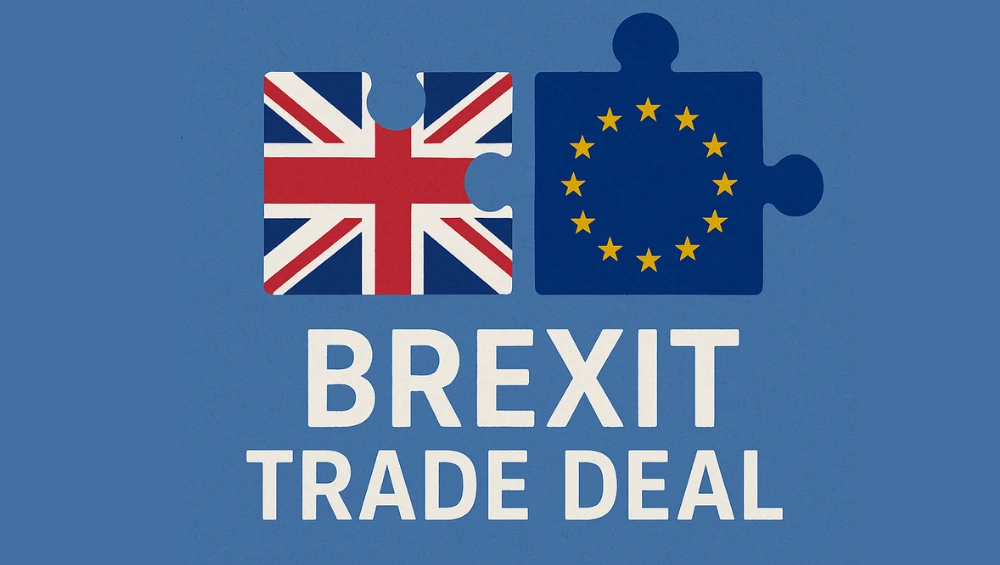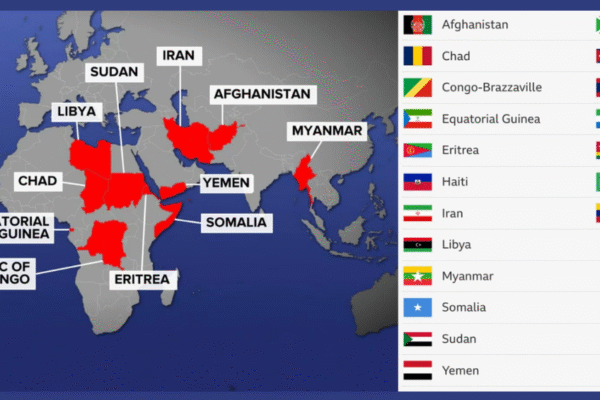The Brexit Trade Deal is one of the most significant agreements that defines the relationship between the United Kingdom and the European Union after Brexit. Since the UK officially left the EU, the Brexit Trade Deal has shaped how the two sides interact economically, politically, and socially. In 2025, this deal continues to influence trade, cooperation, and diplomacy between the UK and the EU. This article explains how the Brexit Trade Deal is affecting UK-EU relations today and what it means for the future.
What is the Brexit Trade Deal?
The Brexit Trade Deal, officially known as the Trade and Cooperation Agreement (TCA), was signed at the end of 2020 and came into effect on January 1, 2021. This deal outlines the rules and agreements for trading goods, services, and cooperation in areas like security and research between the UK and the EU.
The purpose of the Brexit Trade was to avoid a no-deal Brexit scenario, which would have caused tariffs, border checks, and serious disruptions. Instead, the deal allows tariff-free and quota-free trade on goods that meet specific conditions. However, the Brexit Trade Deal also introduced new customs processes and regulatory checks, changing how trade works compared to when the UK was an EU member.
How the Brexit Trade Deal Affects Trade and the Economy
One of the biggest impacts of the Brexit Trade Deal is on trade between the UK and the EU. Before Brexit, the UK was part of the EU’s single market and customs union, which meant goods and services moved freely without customs checks or tariffs.
Today, under the Brexit Deal, there are no tariffs on qualifying goods, but customs declarations and border checks are required. This has caused delays and extra costs for many businesses. Some UK companies have struggled with the paperwork and regulatory changes, affecting supply chains and exports.
Services trade, which is a large part of the UK economy, is less covered by the Brexit Deal. UK service providers face more restrictions when operating in the EU, and this has affected sectors like finance, legal services, and education.
Despite these challenges, the Brexit Trade Deal provides a framework that prevents the worst trade disruptions and gives both the UK and EU a way to continue cooperating economically.
Political Relations and Cooperation Under the Brexit Trade Deal
The Brexit Trade Deal is not just about trade, it also influences political relations between the UK and the EU. The deal includes agreements on security cooperation, data sharing, and environmental standards. These areas require ongoing communication and collaboration.
However, the relationship has faced tension due to disagreements over the interpretation and implementation of the Brexit Trade. One major point of conflict is the Northern Ireland Protocol, which is part of the wider Brexit agreements and affects how goods move between Great Britain and Northern Ireland.
These disputes have led to political debates and negotiations, showing that the Brexit Trade Deal is a living agreement that needs constant management and compromise.
How the Brexit Trade Deal is Changing UK-EU Business Relationships
The Brexit Trade Deal has changed the way businesses on both sides work together. UK companies that relied on seamless trade with the EU now have to adapt to new border controls and regulations. Many businesses have had to increase their administrative work, invest in customs expertise, and adjust supply chains.
For some companies, this has meant higher costs and slower delivery times. For others, it has encouraged innovation and the finding of new markets beyond the EU.
On the EU side, businesses also feel the impact of the Brexit Trade Deal, especially those that traded heavily with the UK. Both sides are learning to navigate this new trading environment, which affects investment and cooperation.
Public Opinion and Social Impact of the Brexit Trade Deal
The Brexit Trade also shapes how people in the UK and the EU view their relationship. Some people feel that the deal represents a new chapter of independence and opportunity for the UK. Others are concerned about economic impacts, border issues, and the future of cooperation.
Cross-border travel, work, and family connections have also been affected by changes introduced under the Brexit Trade Deal and related agreements. These social effects remind us that the deal affects real lives, not just business or politics.
Looking Ahead: The Future of UK-EU Relations Under the Brexit Trade Deal
As the UK and EU move forward, the Brexit Trade Deal will continue to evolve. Both sides have committed to regular dialogue to solve issues and improve cooperation. Trade disputes and regulatory differences will need ongoing negotiation.
The deal also leaves room for new agreements and partnerships outside the EU. The UK is actively pursuing trade deals worldwide, which can complement or change the dynamics set by the Brexit Trade Deal.
The success of UK-EU relations depends on how both parties manage the deal, balance interests, and work together in a complex global environment.
Final Thought
The Brexit Trade Deal is more than just a trade agreement; it is the foundation for the ongoing relationship between the UK and the EU. While it has introduced challenges in trade, politics, and daily life, it also provides a framework for cooperation and partnership in the future.
Understanding how the Brexit Trade Deal shapes UK-EU relations today helps businesses, governments, and citizens prepare for what lies ahead. The deal is still evolving, and its impact will continue to shape the economic and political landscape of both the UK and Europe for years to come.








